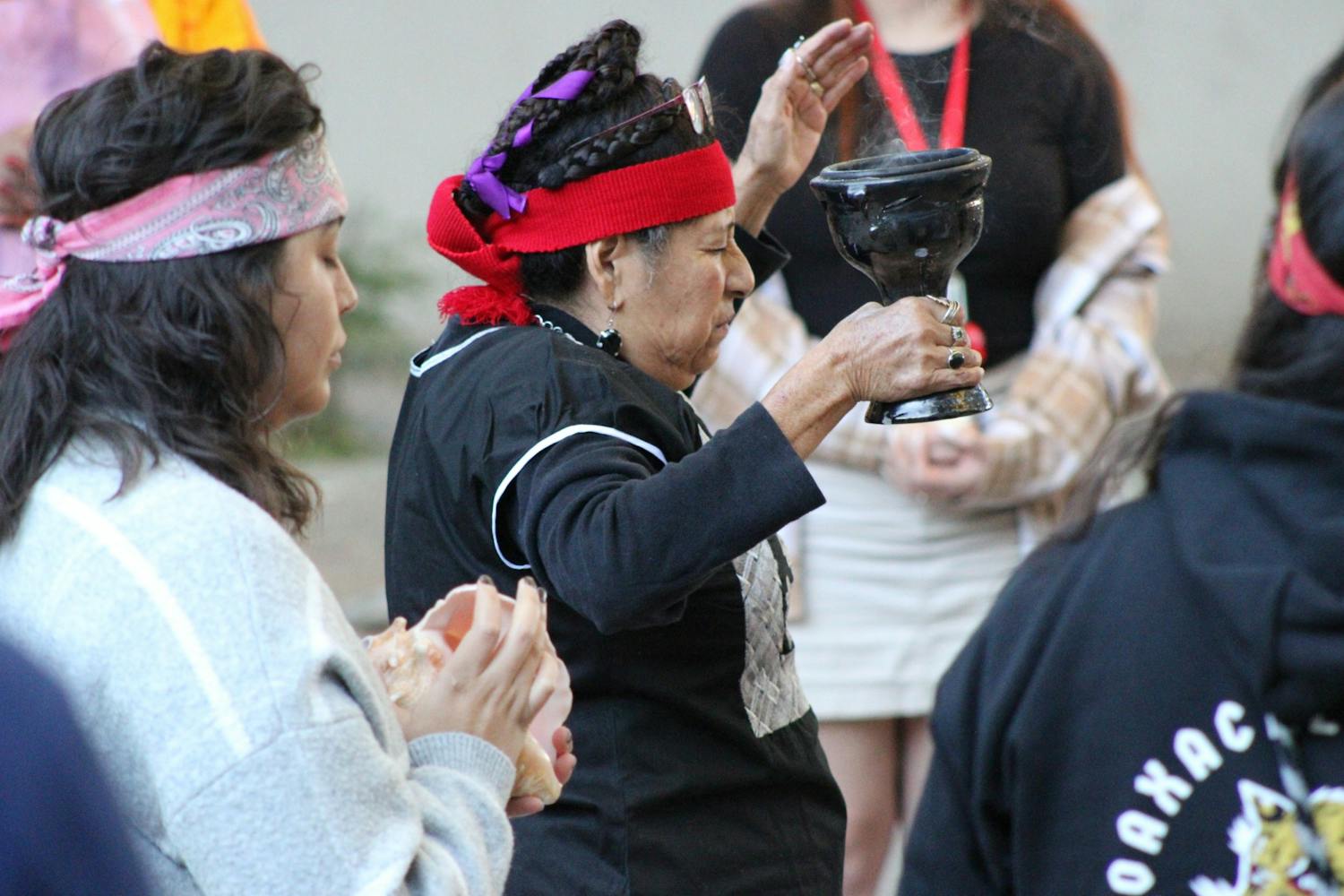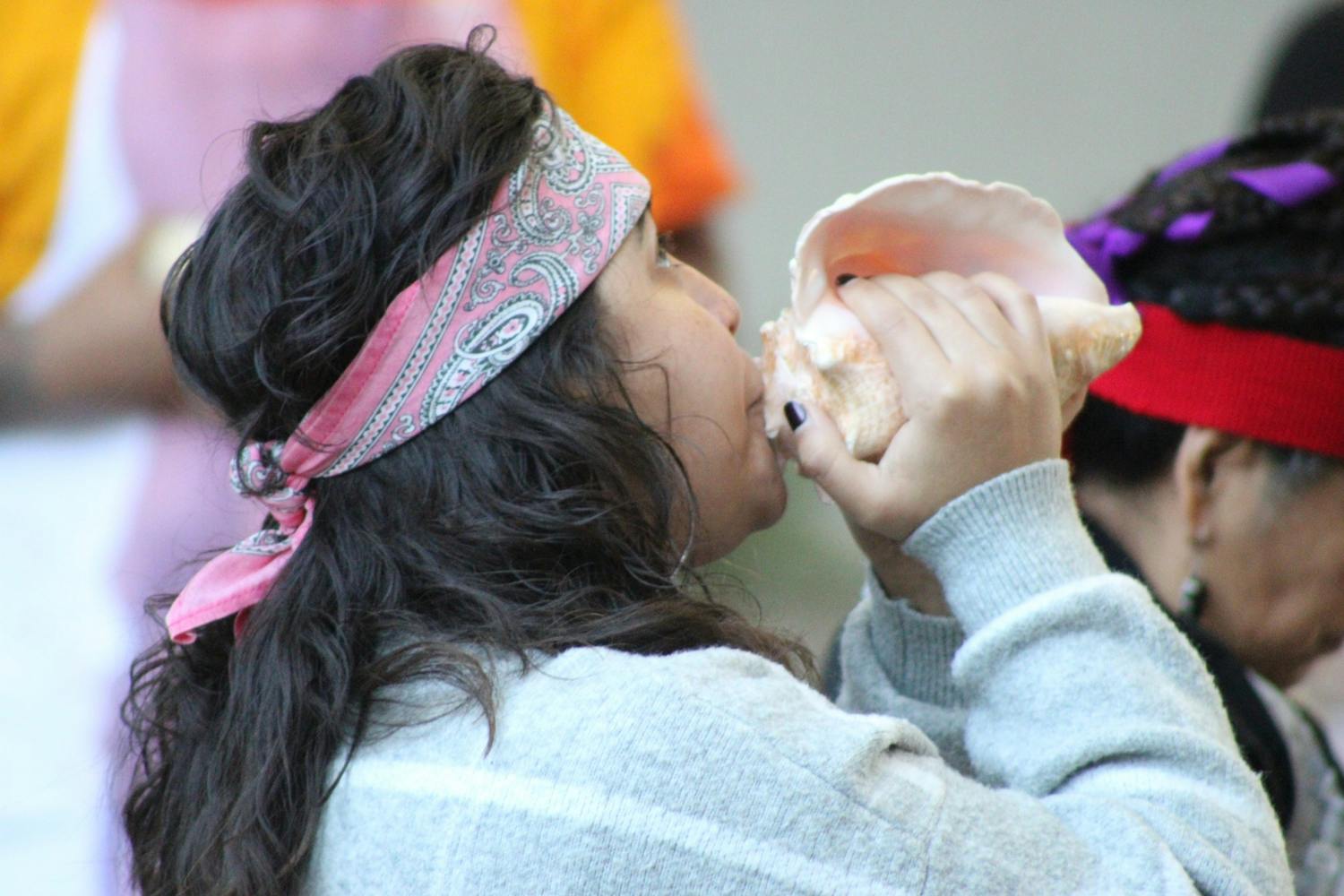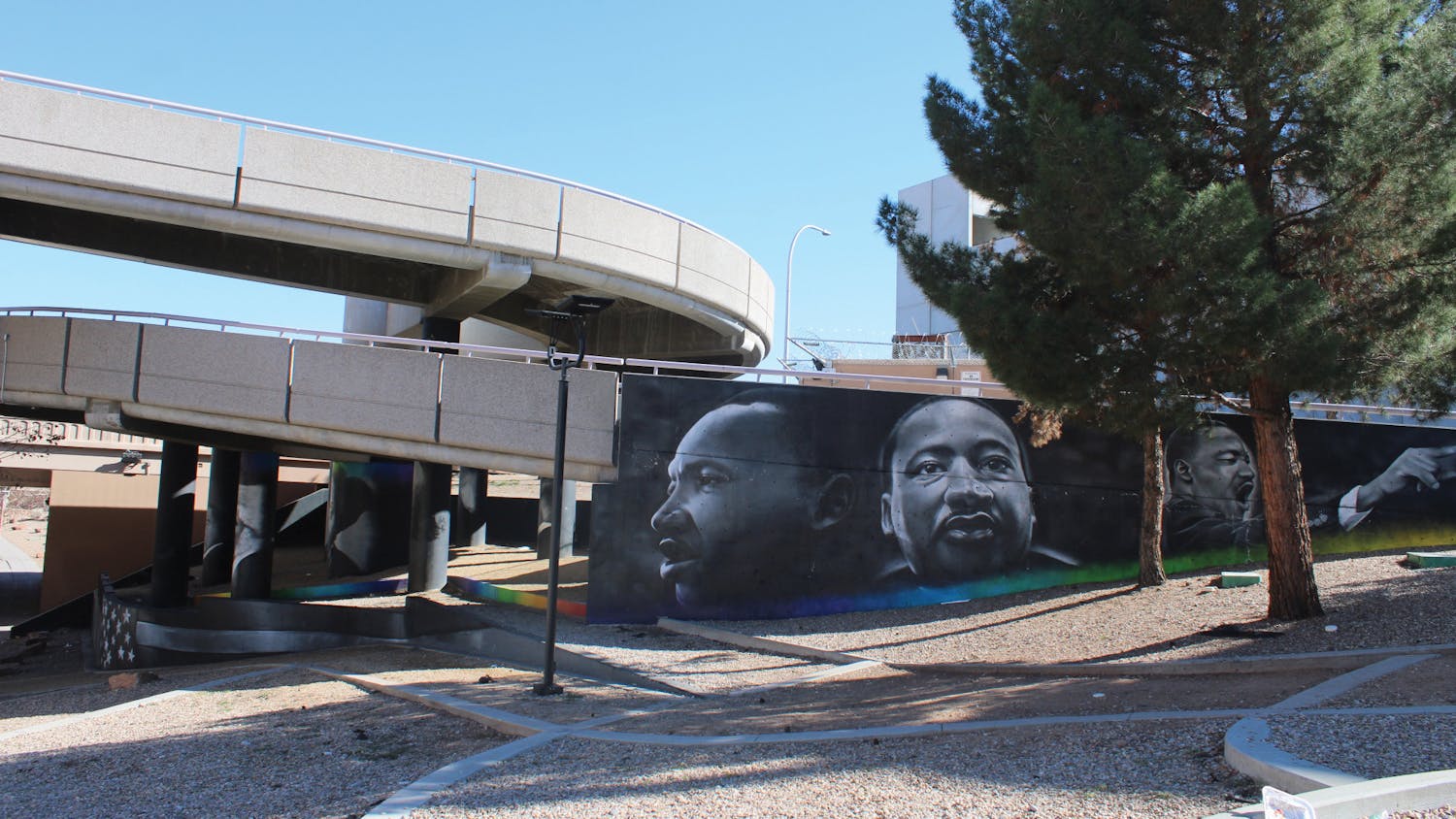El Centro de la Raza at the University of New Mexico began their weeklong Day of the Dead celebrations on Tuesday, Oct. 25 at Mesa Vista Hall. The celebration culminated with the set up of El Centros’ traditional Day of the Dead altar, followed by food and music for all attendees.
El Centro de la Raza is a resource center at UNM dedicated to student advocacy, meaningful programs and services, and educating the campus community on the diverse issues that affect Latinx and Hispano students who attend or hope to attend UNM.
Día de los Muertos is a traditional Mexican celebration that honors the dead and usually takes place Nov. 1 and 2. El Centro has honored this tradition since the early ‘90s when director and special advisor to the president on Latino affairs Rosa Isela Cervantes was a student.
“We started this tradition for students because we didn't see ourselves on campus. We didn't recognize ourselves in what was around campus,” Cervantes said.
There were numerous reasons for starting the tradition at UNM, according to Cervantes. These included helping the Hispanic and Latinx community feel represented and to share their culture with the rest of the student body.
“It was a way of saying ‘this is a part of who I am;’ to share (myself) with you as an invitation for you to share with me,” Cervantes said.
El Centro started their festivities on Tuesday with sugar skull decorating, followed by papel picado (art of perforated paper), a traditional Mexican decorative craft, on Thursday. Both of these are important traditions within Day of the Dead celebrations.
Friday’s event began with a traditional Zapotec ritual led by dance captain Laura Hidalgo Castillo. The purpose was to commemorate the “animas,” or the souls of the dead. The ritual is a way for humans to petition the four winds, which represent the four cardinal directions, for blessings, according to Hidalgo Castillo. The ritual also calls for the lighting of candles and for the performers to do a specific set of movements that simulate the “Ollin Yoliztli,” which means “life and movement” in Nahuatl, a Mexican indigenous tongue and member of the Uto-Aztecan language group.
“It’s not religious, it’s spiritual … it’s mystical,” Hidalgo Castillo said.
Hidalgo Castillo has practiced the Nahuatl ritual prayers for years, which she learned from her Zapotec culture back at her home in Istmo de Tehuantepec, a region in the south of Mexico. She was invited to New Mexico to teach about the rituals and create groups for people to learn and participate, according to Hidalgo Castillo.
Both Hidalgo Castillo and Cervantes have been essential pillars to bring the rituals and Day of the Dead celebrations to El Centro and UNM and turned it into what it is today, according to Hidalgo Castillo.
“It’s a passionate chore … someone needs to do these exercises. More than anything, it’s a heritage that we leave behind for whoever,” Hidalgo Castillo said.
Get content from The Daily Lobo delivered to your inbox
The celebration is also a way to teach that the Day of the Dead is not only “painting your face as a skull,” but rather is a culturally significant celebration of the duality of life and death, according to Hidalgo Castillo.
The celebration started back in the ‘90s with three students and has now grown to dozens, according to Cervantes and Hidalgo Castillos.
Katie Abrego-Lozano, a UNM student, said that she never had the opportunity to celebrate the Day of the Dead throughout her childhood, despite it being a huge part of her heritage.
“Now whenever I have the opportunity, I like to participate in these traditions to feel more connected to my culture,” Abrego-Lozano said.
Paulina Borjas, another UNM student, also said she’d never had the opportunity to celebrate this part of her heritage; El Centro has been able to re-introduced her to her culture.
“I feel like it’s really important to me to acknowledge my culture and who I am,” Borjas said.
The Day of the Dead celebrations at El Centro will continue on Tuesday, Nov. 1 with a showing of “Coco,” a film inspired by Day of the Dead.
“It's exciting that we can continue to share with one another, that we can have these types of spaces where you can bring your cultural and social backgrounds with us so that students can also recognize that they don't have to be one thing here and one thing at home, but they can be their whole house, their whole selves here at the university,” Cervantes said.
Annya Loya is the news editor at the Daily Lobo. She can be contacted at news@dailylobo.com or on Twitter @annyaloya








